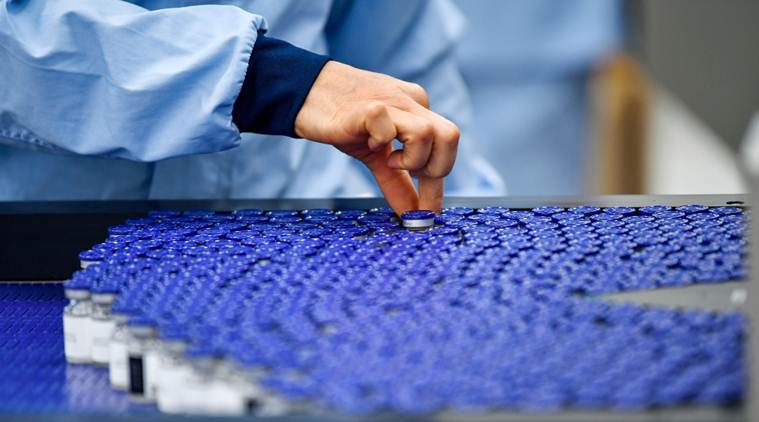 “The possibility of upgrading and restarting old plants is under consideration of the Department of Pharmaceuticals,” said an industry executive requesting anonymity. (Photo: Bloomberg/Representational)
“The possibility of upgrading and restarting old plants is under consideration of the Department of Pharmaceuticals,” said an industry executive requesting anonymity. (Photo: Bloomberg/Representational)
The government is planning to revive old drug manufacturing units that produced key ingredients for crucial medicines in the past, but are now being imported from China. China contributes to almost 70 per cent of India’s imports of key ingredients for medicines.
The move is significant in the backdrop of the and disruption of global supply chains.
Over the last three decades, most of the 7-8 manufacturing plants producing as many as 20 ingredients such as penicillin G, erythromycin, rifamycin, tetracycline, citric acid and vitamin B12, were shut down due to “cheaper alternatives from China”. “The possibility of upgrading and restarting these plants is under consideration of the Department of Pharmaceuticals,” said an industry executive requesting anonymity.
Why official backing is must
China was able to build its cost-effective active pharmaceutical ingredients (API) capabilities due to various incentives like cheap land and electricity. India may have to consider similar incentives to ensure domestic manufacturers build scale and compete with lower Chinese prices.
The idea is looking to wean away the Indian pharmaceutical industry from its heavy dependence on Chinese imports and strengthen its self-reliance. Industry and government sources told The Indian Express that while India had the capability to manufacture most key ingredients, there was no domestic manufacturer currently for fermentation-based ingredients.
Fermentation-based ingredients are used in most antibiotics and vitamins. In response to the novel coronavirus outbreak, the Department of Pharmaceuticals constituted a committee under the chairmanship of Central Drugs Standard Control Organisation (CDSCO) Joint Drug Controller Eswara Reddy to assess and “closely monitor” the situation.
The committee has identified 58 active pharmaceutical ingredients (APIs), intermediates and key starting materials (KSMs) where India needs to build self-reliance. Considering the long gestation period to start a new plant, the government is considering whether upgrading older facilities with newer technology would help expedite the process, sources said.
“We have the technology for these fermentation-based APIs, KSMs and intermediates, and even then the production has been closed and the manufacturing has been developed in China,” said a senior government official, who did not wish to be named. While it would take up to two years to set up a new plant to manufacture these ingredients locally, restarting old ones would take “at least a year because the machinery there would be obsolete”, said a person aware of the development.
“Unless the industry is incentivised at least for a few years the way China incentivised its own pharmaceutical industry, there is little chance of private investment in this sector,” the person said.
“Three decades back, China wasn’t even in the picture in API production. But then, with full government support, they scaled up and sold to India at 20-25 percent less than domestic companies producing bulk drugs. Even with import duties, their products were cheaper, so our formulators began picking them over Indian manufacturers,” the person said.
“Setting up a new plant or even reviving an old one will entail an investment of Rs 150-200 crore. But if normalcy is restored in China in due course, and Chinese companies sell at 20-50 per cent less price, imports might still be preferred,” argued one of the industry executives cited earlier.
While this executive felt there was “no chance” of reviving an old plant previously owned by a private pharmaceutical company — the plant may have been sold and repurposed by now — the person said it was possible to upgrade older government units like those belonging to Hindustan Antibiotics (HAL) and Indian Drugs and Pharmaceuticals (IDPL).
On Wednesday, a meeting was held at government think tank Niti Aayog on India’s dependence on imports of “critical” APIs, with the government seeking inputs from the industry on “various options” to make the country self reliant.
The industry had given some suggestions on environmental concerns and financial incentives like subsidies, which will be examined by the government, a senior official told The Indian Express.